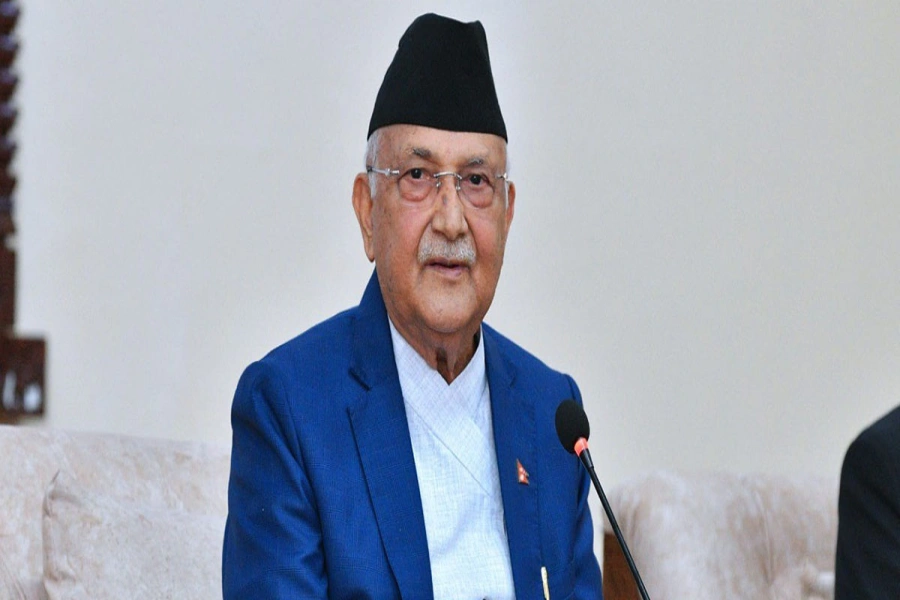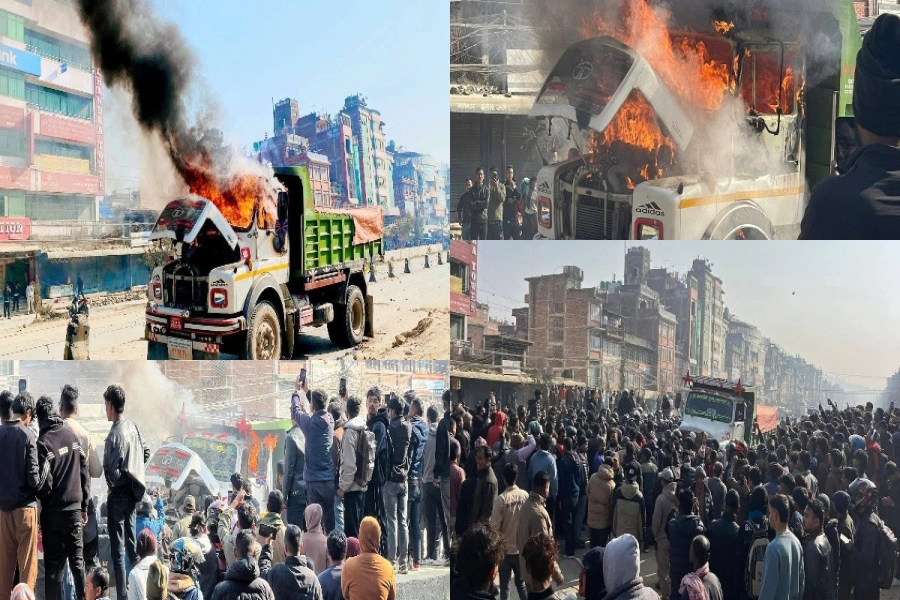The economic blockade and the Terai-Madhesh crisis for the past 80 days has put the country in a serious economic crisis. In the first three months of the current fiscal year, the government has had to already forgo Rs 25 billion in lost revenues. Domestic industries have been decimated as raw materials and other inputs have been stranded at the Kolkata port, for which they have to collectively fork out Rs 40 million a day in demurrage charges. VAT receipts in three months have dropped by 16.41 percent; customs revenues are down by an even more worrying 26.7 percent. Lending of banks and financial institutions has dried up as borrowers have lost confidence in the financial sector. The country, in other words, is on the brink of a full-blown macroeconomic crisis. In such a crisis, inflation, already over 10 percent, could balloon, industries will ground to a halt, stock market collapse and there could be a run on banks as people will look to withdraw their savings. But even in such desperate times the KP Oli government has failed to give any assurance to the panicky Nepali public and business community.To start with it could issue a white paper detailing the economic losses due to the blockade and what it intends to do to tide over the crisis. Such a commitment would instill a lot of confidence among the BFIs, the market and the common public. The country can move forward only when it first has a clear picture of the current state of the economy. That done, the next task would be trying to diversify our trade: as things stand, 70 percent of Nepal's international trade is with the southern neighbor alone. The next biggest trade partner is the US, which accounts for a shade over seven percent of the country's international trade. China, at 2.1 percent, is a distant sixth. Thirty percent of trade deficit with India is the result of fuel imports alone. Nepal has taken the first step towards importing fuel from China. But importing from China in the long term won't be possible unless our roads to Tibet are significantly upgraded. So this should be a government priority in the days ahead.
Another big disappointment has been agriculture, which still employs 70 percent of the working-age people in Nepal. Until a decade ago Nepal used to export fruits and vegetables to India. Today, it imports vegetables worth Rs 50 billion from various Indian markets every year. All these figures show that we have got our macroeconomic fundamentals badly wrong. The risk is that if and when the Indian embargo is lifted, all the talk of diversifying Nepali trade and our supply routes will be conveniently forgotten—until the next crisis. In order to ensure that does not happen, the Oli government must now commit, through a white paper, to diversify our trade. It must also clearly spell out what steps it intends to take to bring the Nepali economy back to a semblance of normalcy.
UK's Boris Johnson on the brink as ministers quit







































